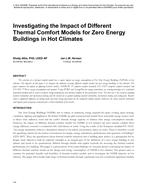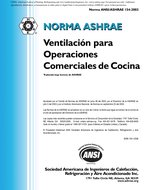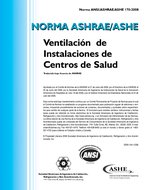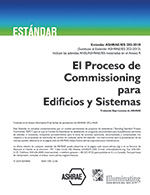Description
The selection of a thermal comfort model has a major impact on energy consumption of Net Zero Energy Buildings (NZEBs) in hotclimates. The objective of this paper is to compare the influence of using different comfort models for zero energy buildings in hot climates. Thepaper compares the impact of applying Givoni’s model, ASHRAE 55 adaptive comfort standard, EN 15251 adaptive comfort standard andEN ISO 7730 on energy consumption and comfort. Using ZEBO and EnergyPlus for energy simulation, an existing prototype of a residentialapartment module will be used to evaluate energy performance and thermal comfort in two parametric series. The first one is the result of couplingnatural ventilation and mechanical cooling and the second one is guided coupling natural ventilation, mechanical cooling and ceiling fans. Resultsshow a significant difference of cooling loads and total energy generation for the compared comfort models. However, the study remains theoreticaland requires post occupancy evaluation for a better reliability of the results.
Citation: First International Conference on Energy and Indoor Environment for Hot Climates, Doha, Qatar, February 2014
Product Details
- Published:
- 2014
- Number of Pages:
- 8
- File Size:
- 1 file , 1.8 MB
- Product Code(s):
- D-2014FICEConf-7-2




